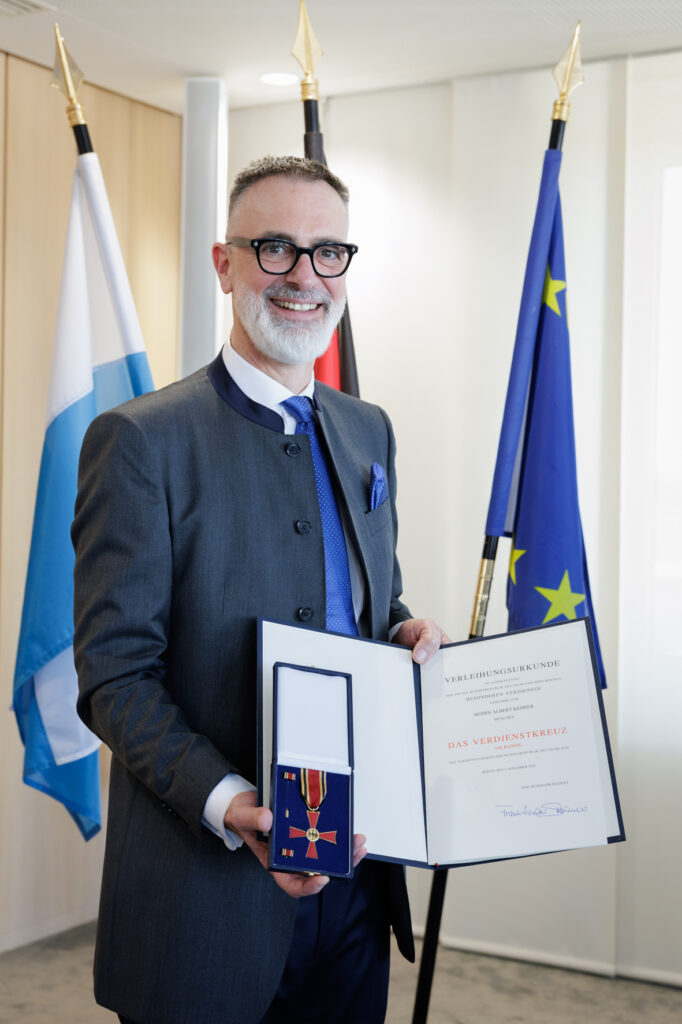
On Thursday, March 20, 2025, the Federal Cross of Merit on Ribbon was presented to Albert Kehrer, CEO of PROUT AT WORK, at a ceremony at the Ministry of Social Affairs in Munich. Albert Kehrer was honored for his long-standing and tireless commitment to queer diversity and equal opportunities in the world of work.
The Order of Merit of the Federal Republic of Germany (Federal Cross of Merit) is the highest recognition awarded by the Federal Republic of Germany for services to the common good. It is awarded to German and foreign citizens for political, economic-social and intellectual achievements as well as for all special services to the Federal Republic of Germany, for example services in the social, charitable and humanitarian fields.
“This award is a great honor – not only for me personally and for the PROUT AT WORK Foundation, but for everyone who is committed to queer diversity and equal opportunities in the world of work. It shows that the commitment and work of PROUT AT WORK is seen and appreciated. Diversity is not a marginal issue, but a strength of our society – and as a board member of PROUT AT WORK, I will continue to work with full conviction for an open and non-discriminatory working world,” says Kehrer.
Albert Kehrer’s career and commitment
Albert Kehrer founded the “LGBTIQ employee network” at IBM back in 2003 and managed it for several years. This network serves as a point of contact for queer employees and their supporters, offers confidential support and sensitizes managers to diversity issues. His commitment promoted the visibility and acceptance of diversity in business and society.
He later worked at KPMG as Head of Diversity & Inclusion for Germany, where he implemented programs for all diversity dimensions. Since 2010, Albert Kehrer has been working as an independent diversity expert, coach and consultant, with a focus on managers. He is listed as an expert by various organizations and has continuously promoted the topics of diversity and queer diversity in the workplace.
Albert Kehrer has also been active on a voluntary basis: he was a board member of “Völklinger Kreis e.V.”, the federal association of gay executives, and founded an initiative for queer employee networks together with Jean-Luc Vey in 2006. This initiative led to the founding of PROUT AT WORK in 2013.
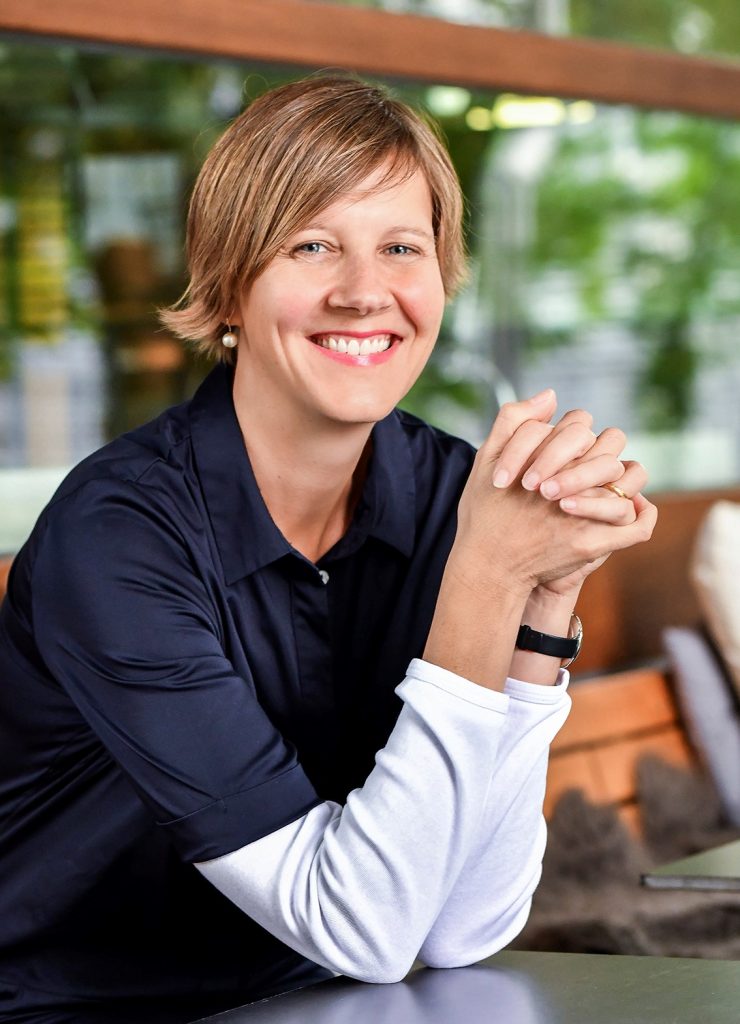
“Through his many years of commitment, Albert has made a valuable contribution to the establishment and further development of queer networks in companies. The award is a strong and important signal that diversity and inclusion must also be seen and promoted in the workplace.” – Dr. Antonia Wadé, Chairwoman of the PROUT AT WORK Foundation Advisory Board
Impressions from the award ceremony
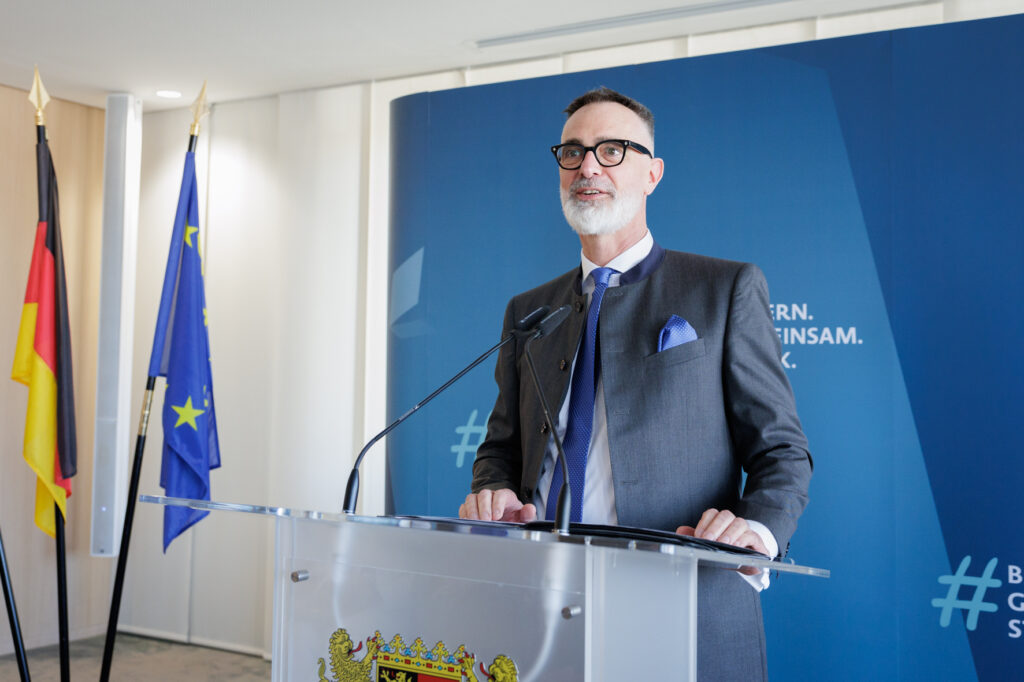
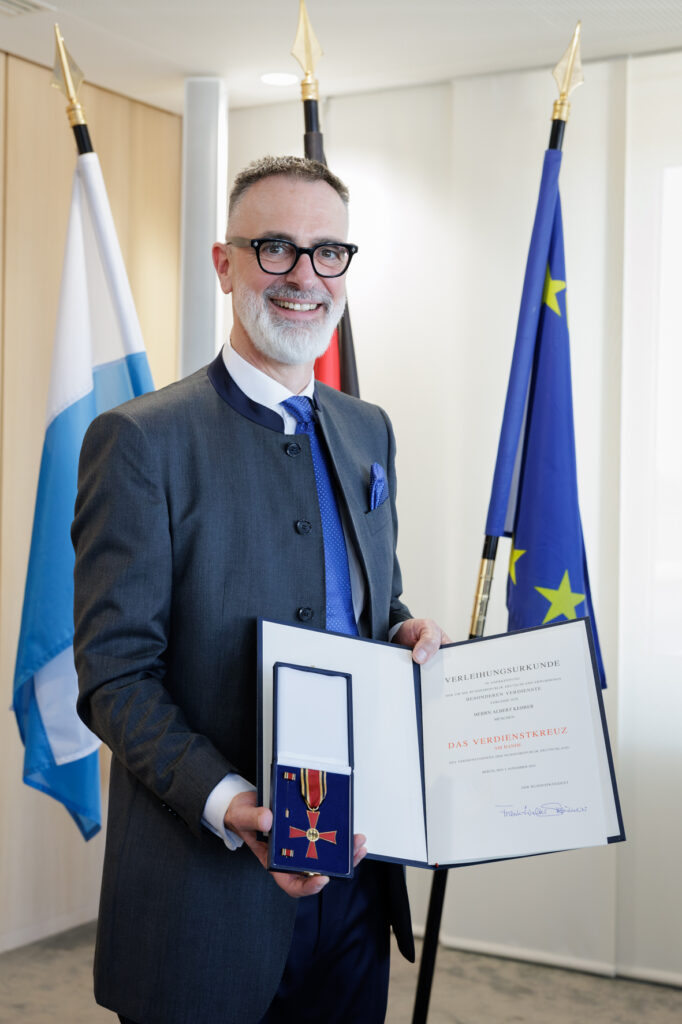
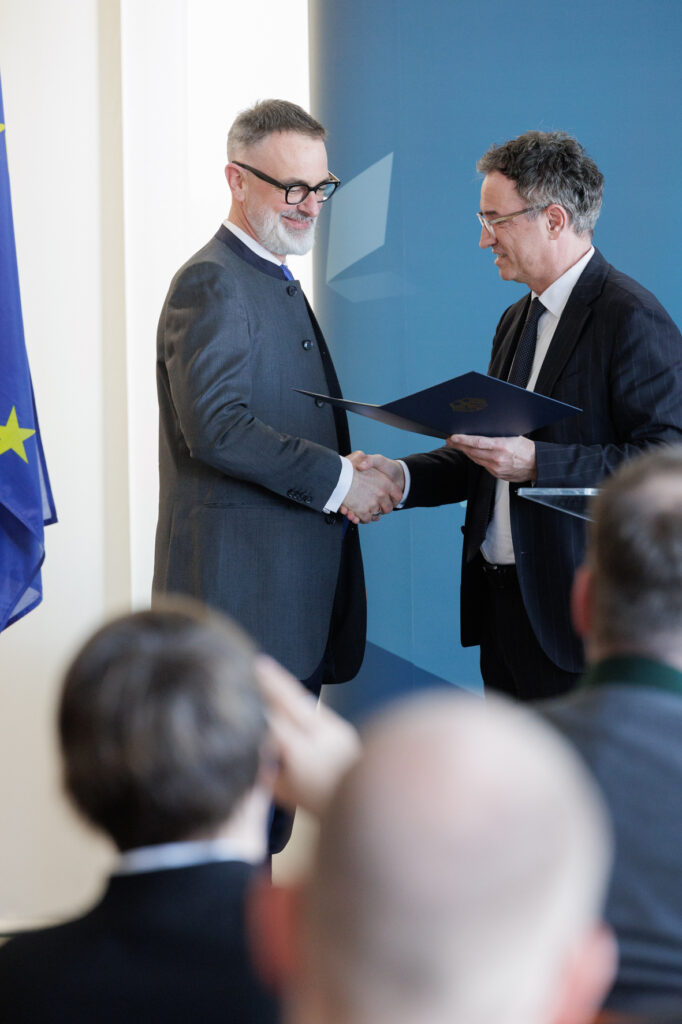
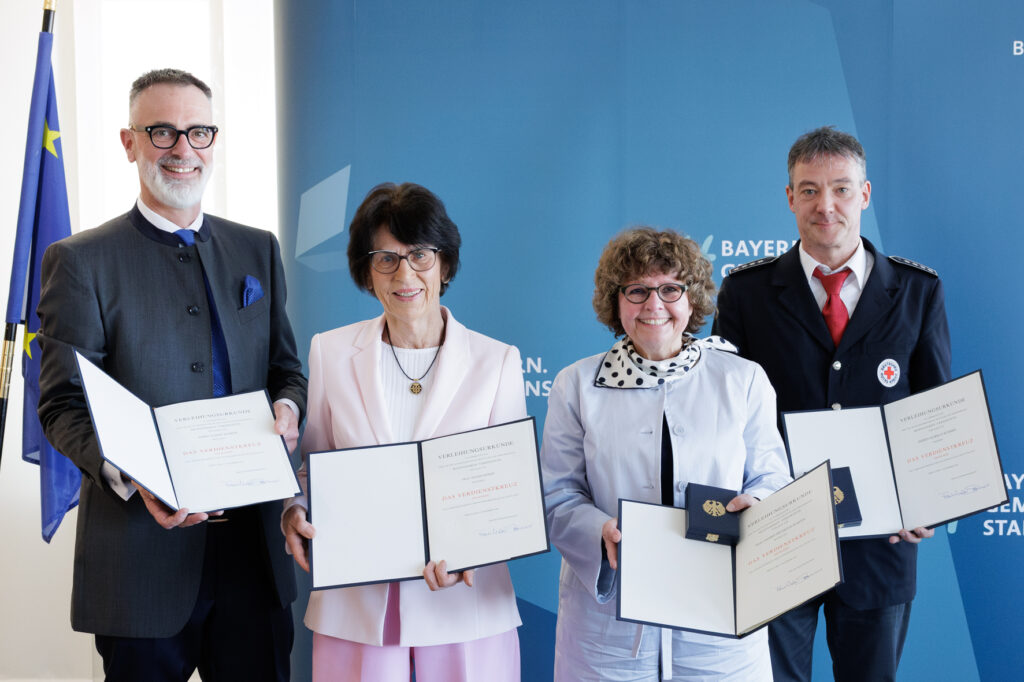
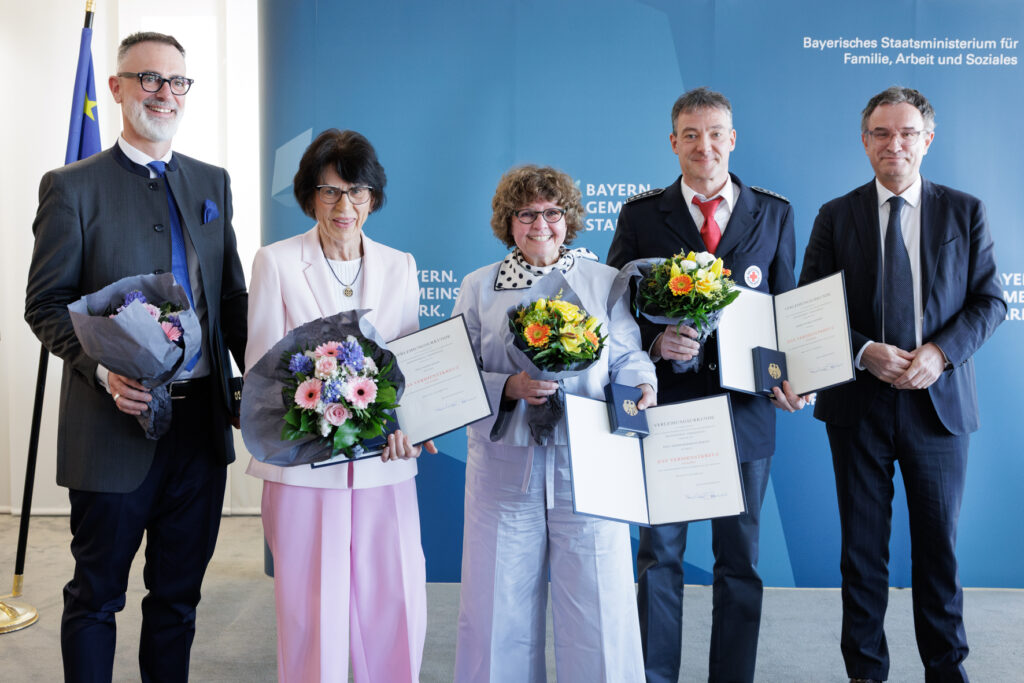
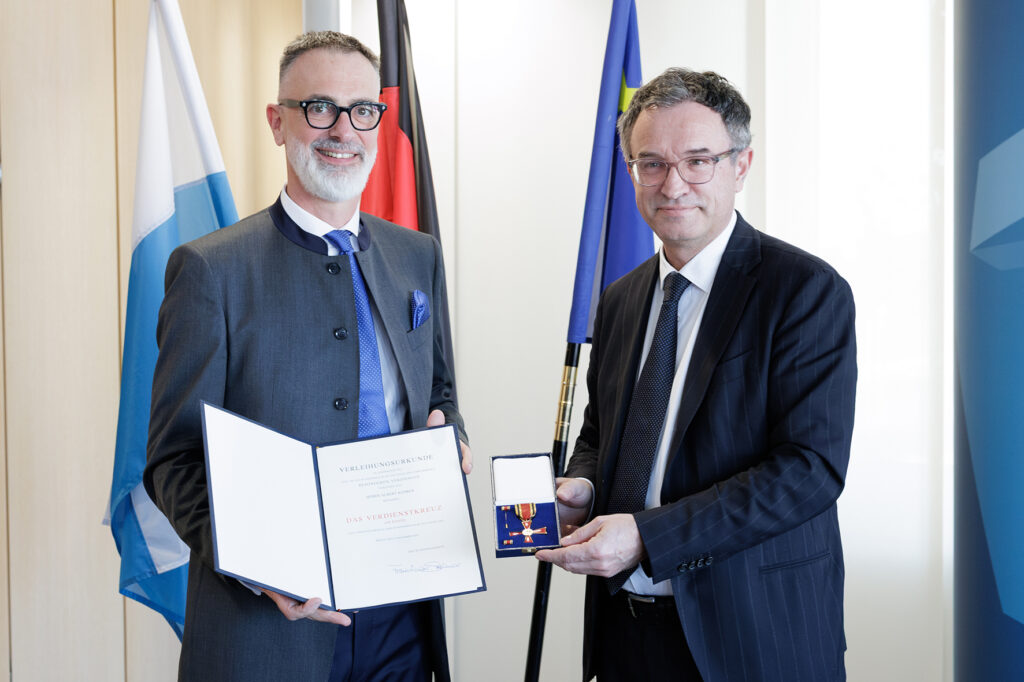
Copyright: StMAS/Schäffler
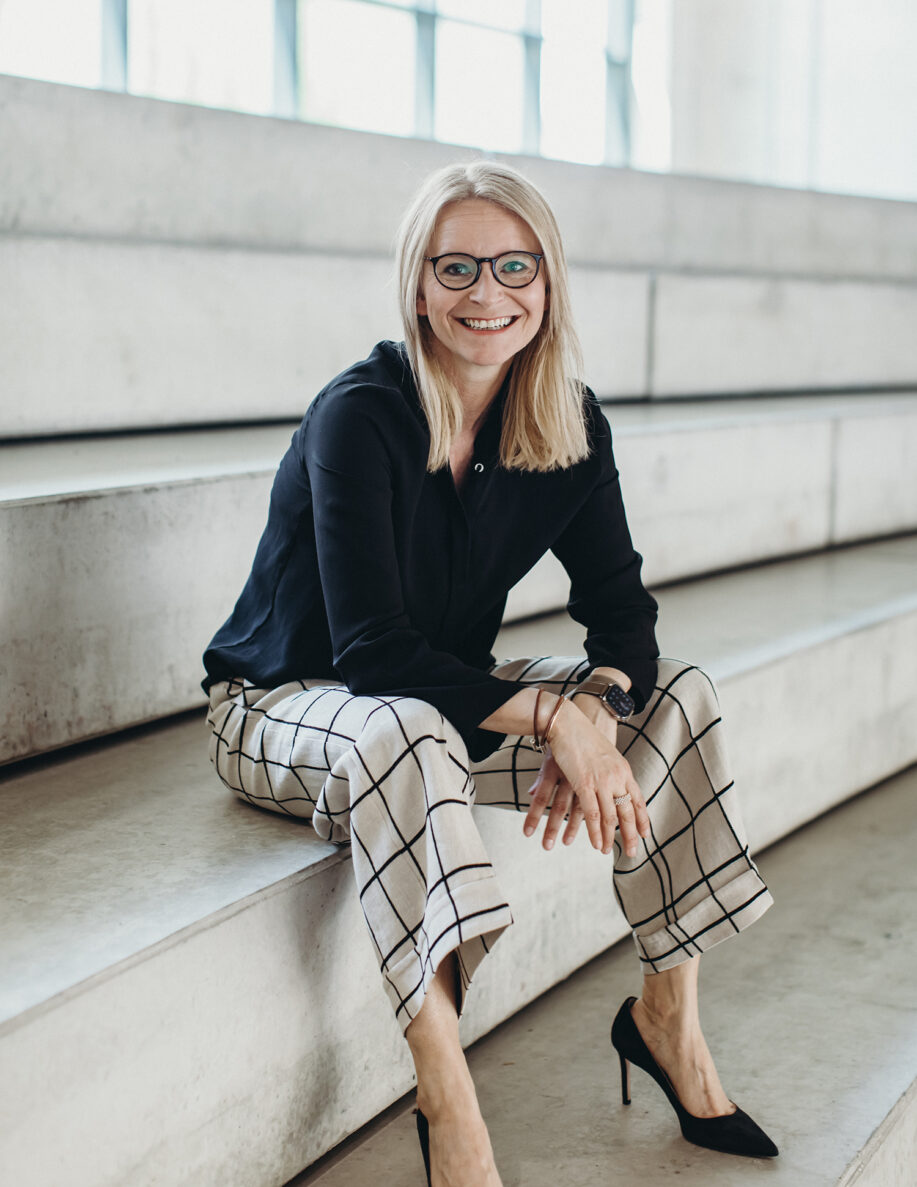
PROUT EMPLOYER o2 TELEFÓNICA
“A workplace where everyone can be their authentic selves without fear isn’t just safe – it enables peak performance and fosters true community.“
Nicole Gerhardt has been with Telefónica Deutschland since August 2017 and serves as Chief Organizational Development & People Officer, overseeing organizational development and the company’s people department. In this role, she takes a holistic view of the organization, its development, transformation, and capacity for renewal, and drives these forward. As the sponsor of the PRIDE Community at o2 Telefónica, Nicole Gerhardt is a strong advocate for a diverse and inclusive corporate culture.
Why is it a matter of the heart for you
to support queer employees?
Nicole Gerhardt: At Telefónica, we believe diversity is the engine of innovation and resilience. Diverse perspectives bring new ideas and strengthen our organization. Queer employees play an indispensable role by expanding our thinking and dismantling barriers. A workplace where everyone can be their authentic selves without fear isn’t just safe – it enables peak performance and fosters true community. And that’s what people are looking for, especially now.
What initiatives do you pursue in your company with regard
to equal opportunities for queer people in the workplace?
Nicole Gerhardt: At o2 Telefónica, we focus on initiatives that create an environment in which everyone can develop authentically. Our PRIDE community plays a central role in this: it raises awareness of queer issues and promotes exchange at all levels of the company. We create concrete structures for equal opportunities through regular training, awareness-raising measures and visible support from the Management Board, including in other dimensions of diversity. Our goal is to actively counteract discrimination, amplify queer voices within the company, and, most importantly, learn from one another while breaking down fears.
What are the next steps, wishes and
goals for queer diversity at Telefónica?
Nicole Gerhardt: It’s not about taking many steps, but the right ones – consistently and with conviction. It doesn’t have to be complicated: communication, training, and the awareness that this work is never truly finished are key. For example, we talk far too little about the fact that LGBTIAQ+ discrimination is once again on the rise here in Germany. Our societal achievements must be continuously defended. I want us to embrace our role as bridge-builders, both within and beyond the company, even more strongly.
Where do you hope to get concrete support
from PROUT AT WORK?
Nicole Gerhardt: We look to PROUT AT WORK primarily for professional expertise and practical support. We understand that implementing effective DE&I measures in socially and economically challenging times requires a special level of sensitivity and experience – qualities that PROUT AT WORK brings to the table. Additionally, we value the opportunity to engage in constructive and confidential exchanges with other companies.
What advice would you give to other companies
that have not yet discovered queer diversity for themselves?
Nicole Gerhardt: Start—but only if you mean it. The time for tokenism is over. Companies that listen, learn, and create spaces where everyone can be their authentic selves gain the best ideas and the strongest teams. But it’s about more than business: queer inclusion is a contribution to a fairer society—the kind we all want to live in. The first steps? Small, intentional actions like awareness training, open dialogue, or policies that truly address queer needs. This shows that real change doesn’t come from the outside – it starts from within.
Dear Nicole Gerhardt, thank you very much for the interview!
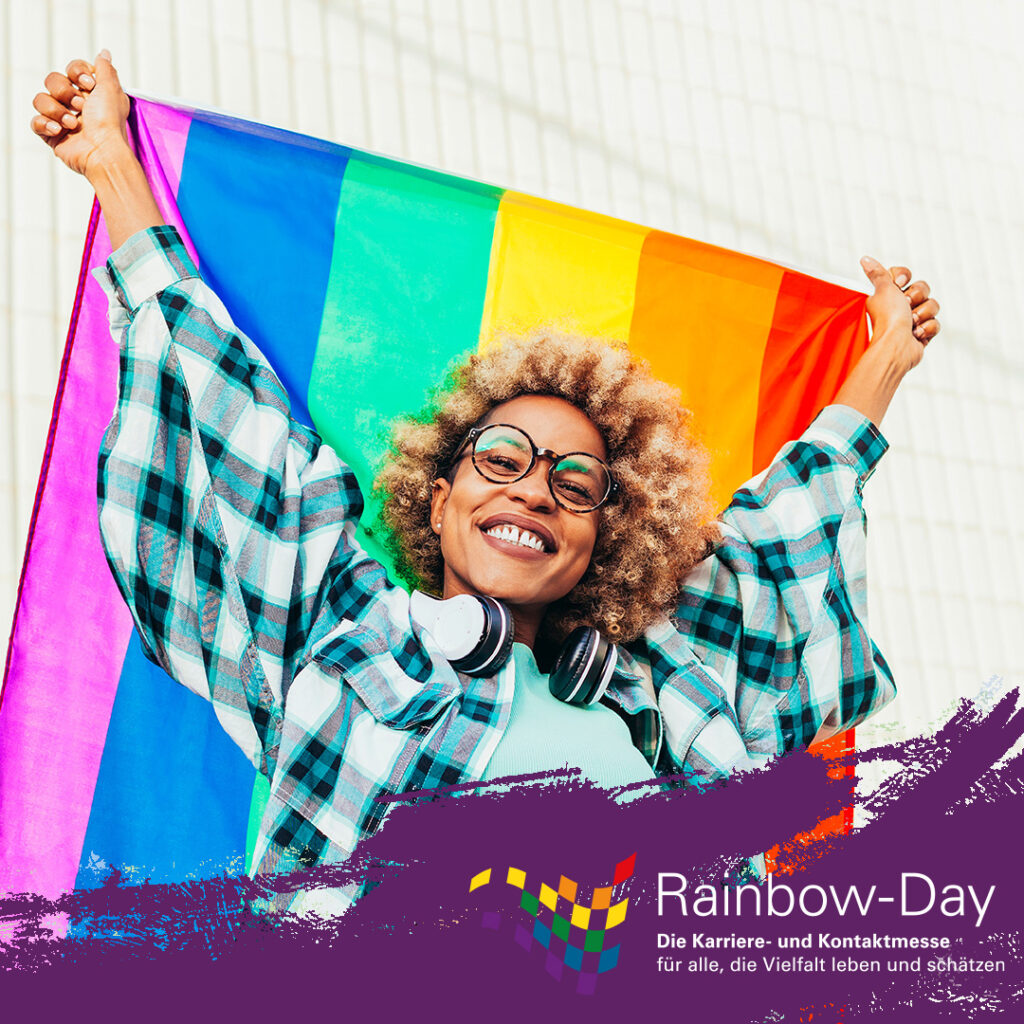
After Rainbow Day 2023 took place for the first time at Goethe University in Frankfurt am Main, the queer career and contact fair also stopped in several cities in 2024 – including Munich and Frankfurt am Main. PROUT AT WORK was also on site as part of a partnership and gave a presentation on queer diversity in the workplace.
The career and contact fair for queer students and job seekers offers a direct exchange and networking between companies and potential applicants, for whom queer diversity in the company is particularly important. They can explore their own career opportunities and find out what measures companies are implementing to actively promote queer diversity in the workplace.
Numerous companies took the opportunity at the Rainbow Days to present themselves as queer-friendly employers and get in touch with queer talents – including some of our PROUT EMPLOYERS, such as BMW, Freshfields, Hays, Infineon and Roland Berger.
PROUT AT WORK was represented last year at the Rainbow Days on February 6, 2024 in Munich and on July 18, 2024 in Frankfurt am Main as well as this year on January 31 in Munich with an information stand and provided input on stage.
young queers iN THE WORKPLACE
At the PROUT AT WORK stand, both interested companies and job seekers were able to find out more about the topic of queer diversity in the workplace and get in touch with the foundation. Enea Cocco, speaker and Project Lead Pride Day Germany at PROUT AT WORK, gave a presentation on stage about queer diversity and coming out in the workplace, providing numerous business cases and statistics as well as arguments for why employers should ensure that queer people find an environment in which coming out is possible. In a panel on the topic of “Young queers in the workplace”, the participants looked at the future topic from different perspectives and identified individual barriers and obstacles.
Many young professionals run the risk of deciding not to come out at work after all, despite their openness during their studies. Queer career fairs such as Rainbow Day show students that they can also be open about their sexual orientation and/or gender identity in the workplace and that companies can benefit from diversity.
PROUT AT WORK plans to participate in the Rainbow Days again next year, including on July 1, 2025 in Frankfurt am Main, to be a visible point of contact for queer diversity in the workplace for both companies and students. We look forward to seeing many of you there!
Impressions Munich
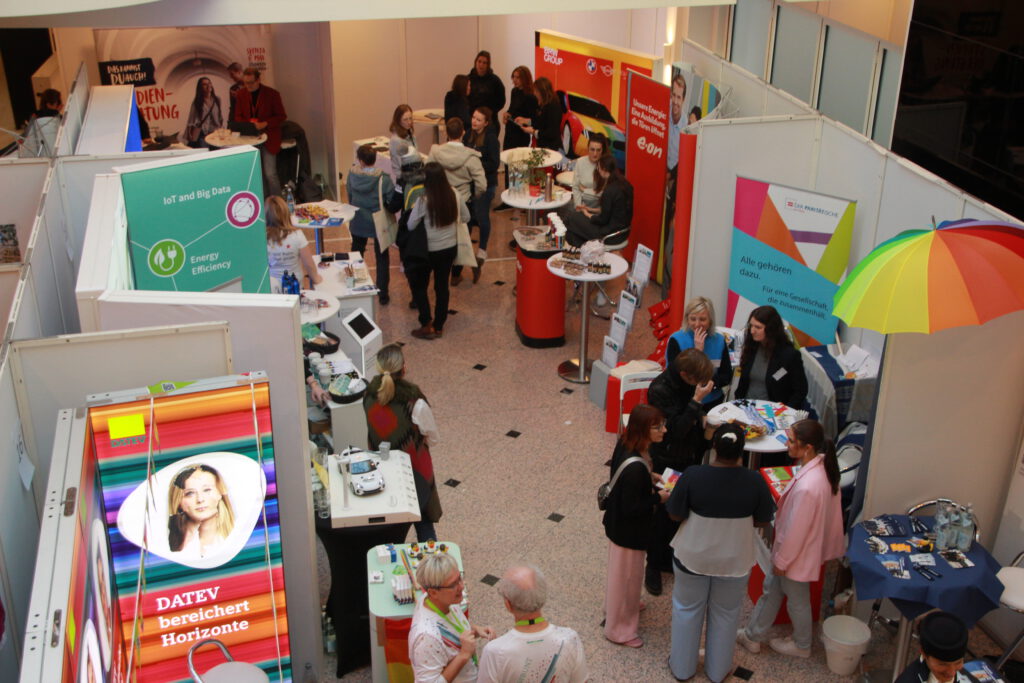
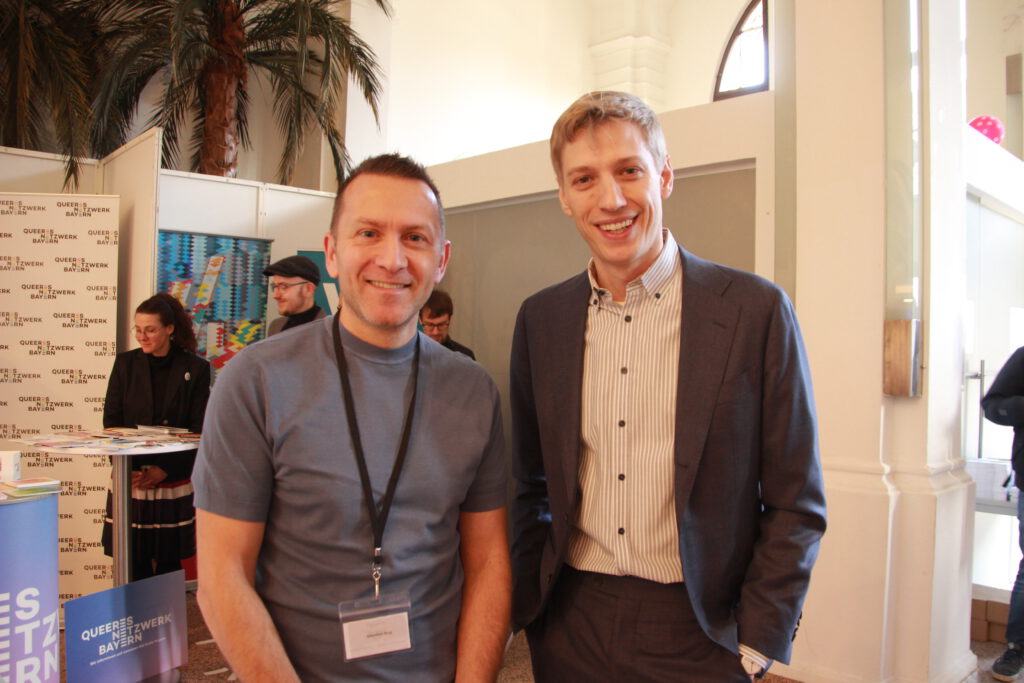
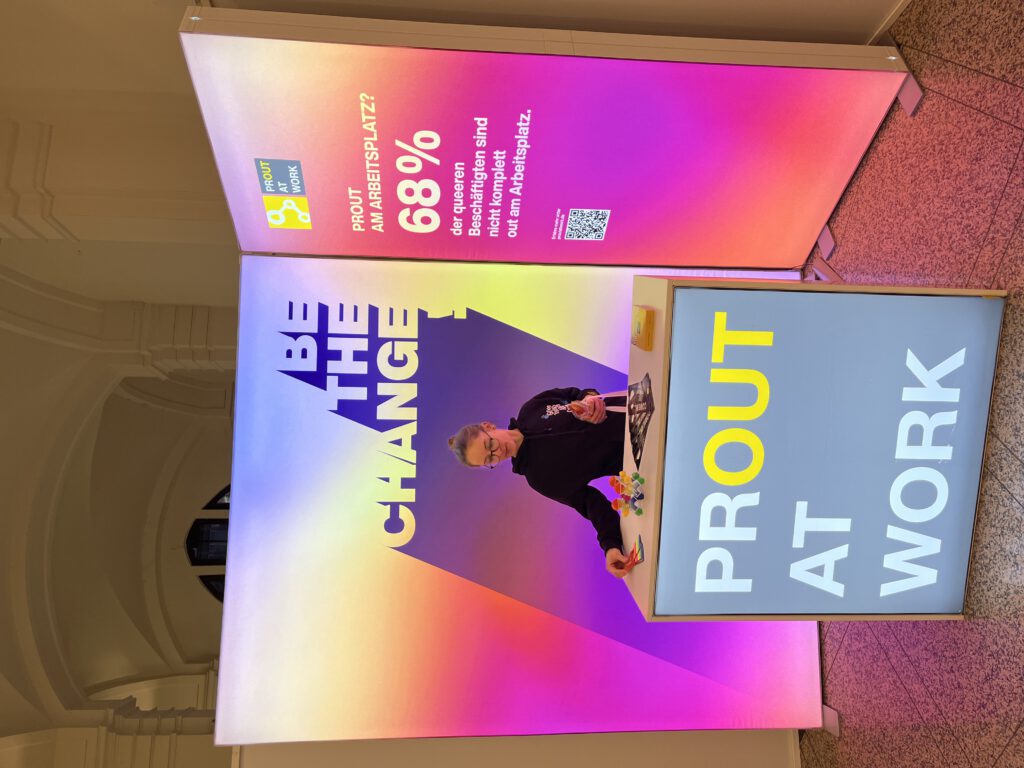
Impressions Frankfurt am Main
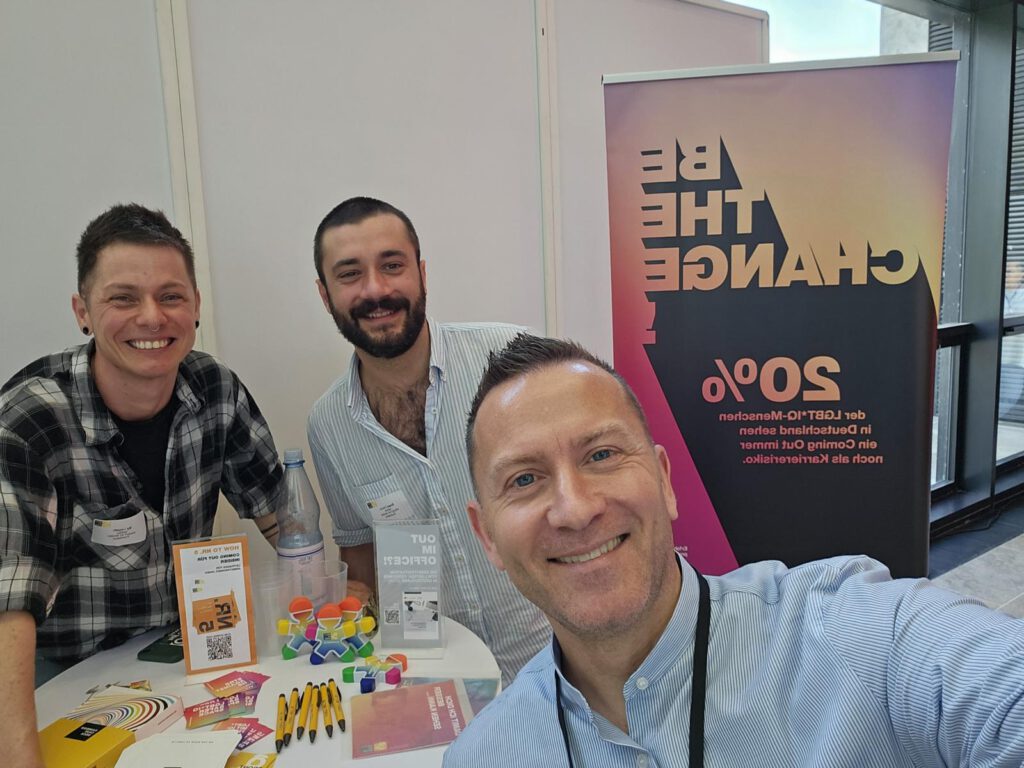
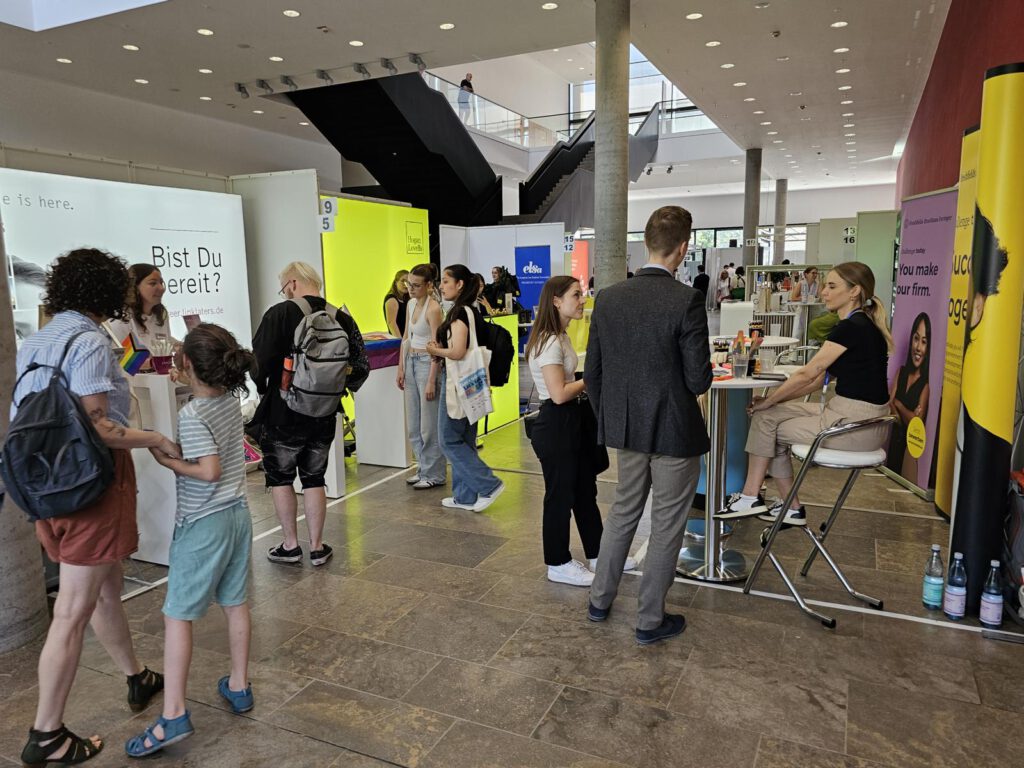

In 2024, the PROUT AT WORK-Foundation presented the Queer Network Awards for the seventh time, honoring dedicated networkers. On the evening of the first conference day, five networks were recognized in the categories of Big Impact Initiative, Rising Star, Global Leader Network, and Sustainability.
Additionally, a special award was introduced for the first time, acknowledging the efforts of a queer network that achieved remarkable work and significant media attention but didn’t fit into the existing award categories, as it doesn’t operate as a traditional corporate network.
BIG IMPACT INITIATIVE AWARD:
rewe group dito
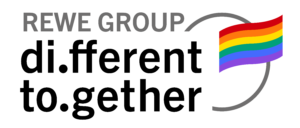
This year, REWE Group DITO received the award in the BIG IMPACT INITIATIVE category. Together with its network mentor and CEO Lionel Souque, the network initiated and internally implemented a comprehensive online training course on the topic of “Queer Diversity”. Among other things, the focus was on dealing with gender identity and sexual orientation in the workplace. The training is available in the learning catalog for all employees for an indefinite period of time and is therefore firmly anchored in the Group for the long term. In addition to queer diversity and inclusion, further training courses on other dimensions of diversity are planned for the future.
RISING STAR AWARD:
proud – novelis
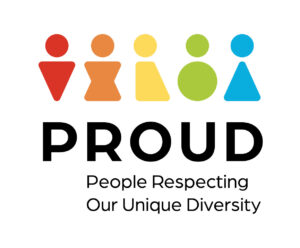
The PROUD network from Novelis will receive the RISING STAR award this year. The network was founded in Europe in 2022 and has been supported by 15 allies in the European plants since last year. In addition to initial events, such as participation in three Pride events in 2023, the network has started to take targeted action at Novelis plants in its second year. The network in Europe has inspired and motivated the regions of North and South America to also establish an LGBT*IQ network. PROUD in Europe is organized by a core team of four people and supported by the sponsor – the Vice President HR of Novelis Europe.
GLOBAL LEADER NETWORK AWARD:
equal at mckinsey
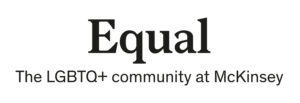
The GLOBAL LEADER NETWORK award is presented to the Equal at McKinsey network, which celebrates its 30th anniversary next year and has grown significantly in recent years. There are more than 14,000 Inclusion Allies worldwide who are committed to promoting queer issues within the company. McKinsey has a global strategy to actively promote the network in all offices around the world. The company has queer leaders in offices around the world, including China, Chile, France, Germany, Poland, Singapore, the United States, the United Kingdom, Canada, the Netherlands and South Africa. They act as role models in the company and play their part in increasing the visibility of queer people and content in the company.
sustainability AWARD:
arco by commerzbank
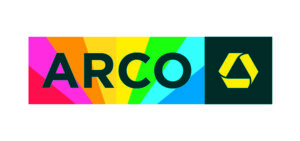
ARCO, Commerzbank’s Pride network, receives the SUSTAINABILITY Award from the PROUT AT WORK Foundation. For over 20 years, the employee network has been committed to breaking down prejudices and promoting mutual acceptance at all levels within the company. With regular events and publications, ARCO raises awareness of queer issues and creates a working environment in which all employees can be who they are. An Executive Ally program involves managers in all segments as supporters of queer people. The Executive Board has also supported the network, which is being continuously expanded, since it was founded in 2002. This gives ARCO a pioneering role for queer employee networks in Germany.
special award:
#outinchurch e.V.
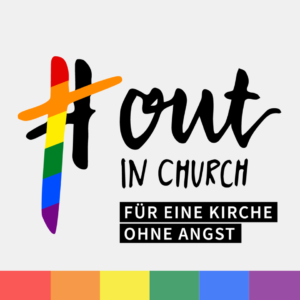
This year’s special award goes to #OutInChurch e.V. The campaign – initiated by full-time, voluntary, potential and former employees of the Roman Catholic Church – was launched in January 2022 and is still helping to make queer people visible in the church and give their concerns a voice. The strategic goal of #OutInChurch was to expose abuses in the Catholic Church and to initiate necessary reforms that would make the Catholic Church a place free of discrimination. A secondary condition for this was the protection of the individual by creating publicity. This was successful: due to the relatively high number of participants, there have been no consequences under employment law to date. Catholic employment law was amended in the fall of 2022 so that a queer identity and a queer relationship are no longer grounds for dismissal. Public pressure on the Catholic Church, which was already high for many other reasons, was increased once again and implicitly called on its representatives to take a stand.
Follow us on Social Media!
Instagram: https://www.instagram.com/proutatwork/
LinkedIn: https://www.linkedin.com/company/proutatwork/
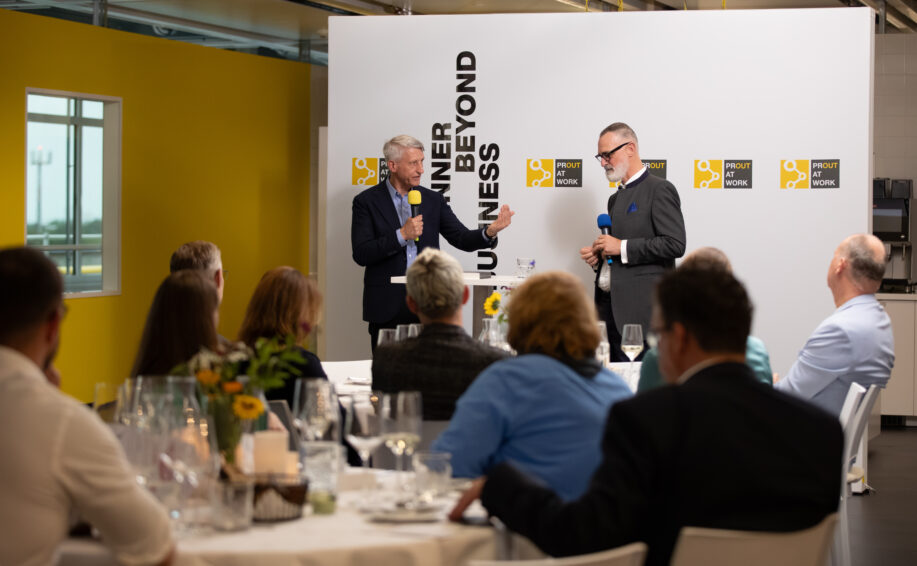
Sander van’t Noordende
“SENIOR LEADERS AND CEOS IN PARTICULAR MUST STAND UP AND SHOW THEIR SUPPORT, BECAUSE THEY ARE THE FOCUS OF THE COMPANY AND ACT AS ROLE MODELS.”
Queer equal opportunities will continue to be an important topic in 2024 – especially in times when we are seeing an increase in queer-hostile activities. It is important for individuals, who are thus gaining more and more freedom to live their authentic selves in the workplace, and just as important for companies that offer their employees an appreciative environment.
Albert Kehrer, CEO of PROUT AT WORK, also emphasized in his opening speech why queer diversity in the workplace is so important: “Queer diversity is considered an indicator of an open and inclusive corporate culture.”
At the PROUT AT WORK Foundation’s 7th DINNER BEYOND BUSINESS, the focus was on the commitment of companies and managers to queer employees: “In times when hatred, hate speech and crime against queer people are on the rise again, IKEA is standing up as an ally and strong supporter. We have a zero-tolerance policy for attacks on queer people inside and outside the company. I am pleased and proud that many people from the queer community find their professional home at IKEA,” says Walter Kadnar, Country Retail Manager & CSO IKEA Germany. The invitation to DINNER BEYOND BUSINESS 2024 was accepted by over 50 senior executives from major companies and institutions, including representatives from Accenture, Boehringer Ingelheim, Commerzbank, congstar, Disney, Ergo, Infineon, KPMG, Novelis, Oracle, OTTO, PwC and Siemens. The participants of the top-class networking event enjoyed an exclusive dinner at the IKEA headquarters in Hofheim am Taunus. Albert Kehrer explained the background to DINNER BEYOND BUSINESS in his welcoming speech: “Behind a manager there is always a personal story that has an impact on performance in the workplace. That’s why we invited people to DINNER BEYOND BUSINESS 2024 to find out more about the queer side of business. Supporting queer people in the workplace is much more than just supporting a marginalized group.” The highlight of the evening was the Fireside Chat by Albert Kehrer together with Sander van’t Noordende, CEO of Randstad, about role models, coming out at work and allyship.
“For us at Randstad, our ultimate goal is for everyone to feel comfortable at work.”
Sander van’t Noordende has been Chief Executive Officer and Chairman of the Board at Randstad since March 2022 and is one of the only openly gay CEOs among the Fortune 500. Sander spent most of his career at Accenture, where he held a number of leadership positions. During his successful three decades at Accenture, he served as Group Chief Executive of the Products Operating Group. Sander advocates for the importance of DEI&B in the workplace at international events, including at the World Economic Forum in Davos with discussions on inclusion and the rights of queer people.
“All employees should have the same opportunities – but that also means that we have to organize our processes and those of our customers accordingly.”
At the beginning of the Fireside Chat, Sander van’t Noordende shared some private insights as an out executive: “I come from a very diverse family: I have two gay uncles and two lesbian aunts, which has always been the most normal thing in the world for me. But a diverse family doesn’t automatically mean it’s easy to come out as gay.” His role model has always been his gay uncle, who showed him that you can also be successful at work as a gay man. “For us at Randstad, our ultimate goal is for everyone to feel comfortable at work. All employees should have the same opportunities – but that also means that we have to organize our processes and those of our customers accordingly.” He is also convinced that companies need to position themselves on certain issues: “Senior leaders and CEOs in particular need to stand up and show their support, because they are the focus of the company and act as role models.”
recording of the talk with sander van’t noordende
PROUT AMPLIFIER EDITION
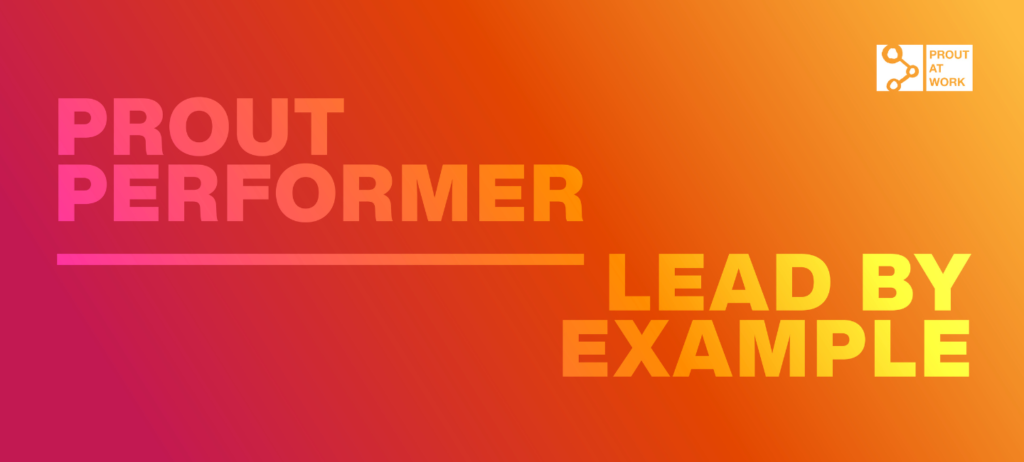
Diversity! But sustainable
On May 13, 2024, we were guests at one100 – the Randstad head office – in Eschborn. Despite spring thunderstorms over Frankfurt, we welcomed around 40 networkers to the first PROUT PERFORMER Networking Event 2024.
In an on-stage discussion with PROUT AT WORK board member Albert Kehrer, Frank Münze (Head of Talent & EDI&B), Carlotta Köster-Brons (Head of the Capital Office, National CSR Coordinator) and Bettina Desch (External Communications Expert) provided insights into the sustainability and EDI&B strategy at Randstad from various perspectives.
Afterwards, the guests had the opportunity – with a cool drink and a delicious snack in hand – to continue the exchange, talk about the challenges and opportunities of diversity work and share best practices from their own work contexts. Absolutely added value for the participants and super interesting for us too.
We were also very impressed by the guided tours of the impressive head office, where New Work is practiced in many different ways, from a flexible workplace to a fitness studio and a parent-child room, in order to meet the needs and requirements of employees in their day-to-day work.
Many thanks to all visitors, our hosts, co-organizers and the Randstad Pride BRG for their active support on site.
Impressions
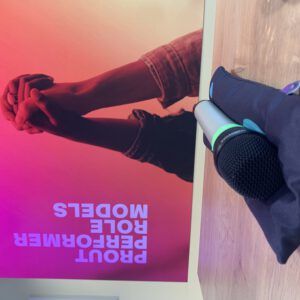
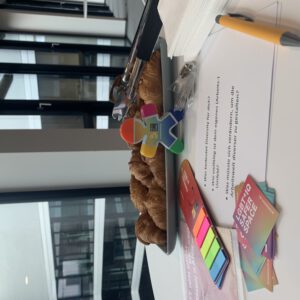
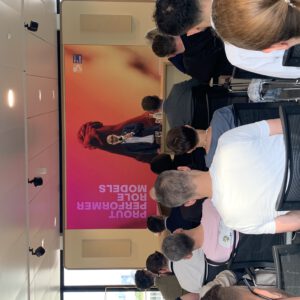
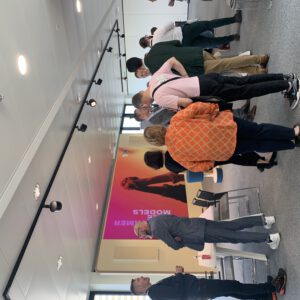
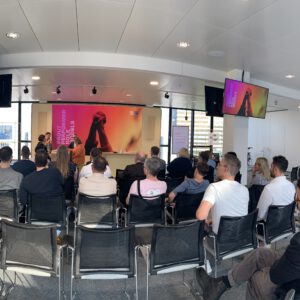
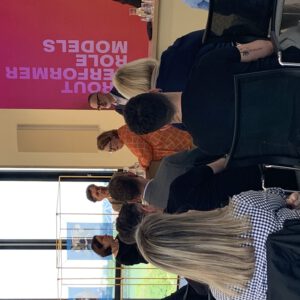
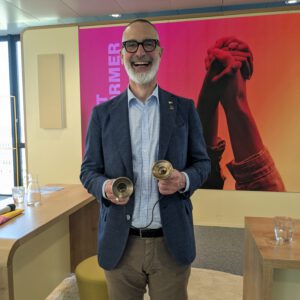
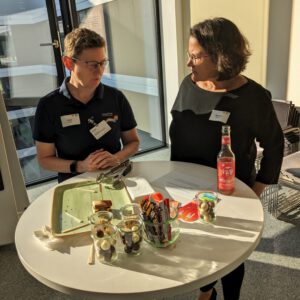
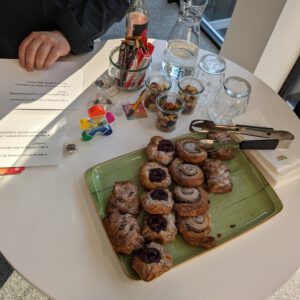
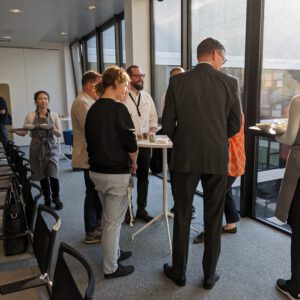
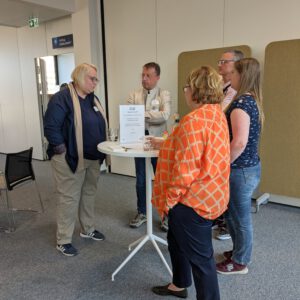
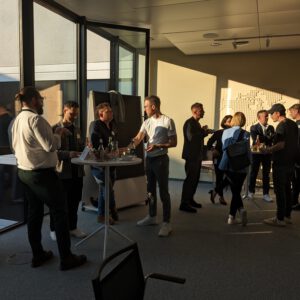
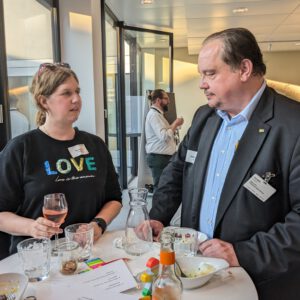
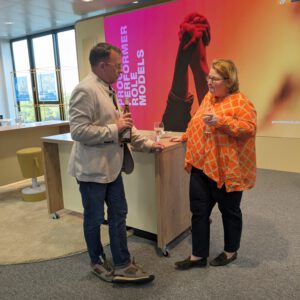
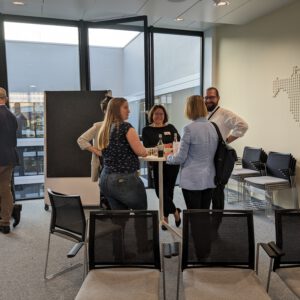
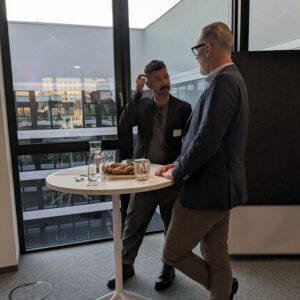
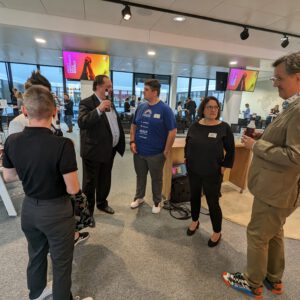
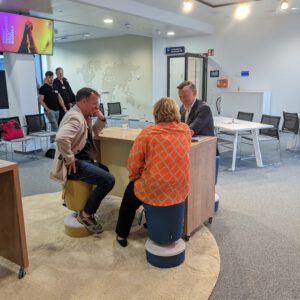
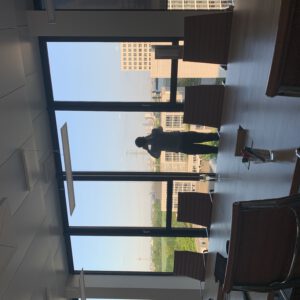

Kindly supported by
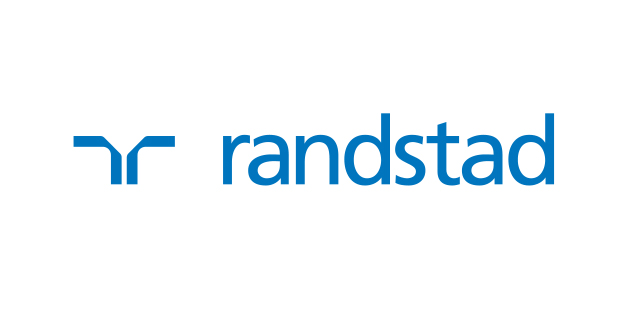
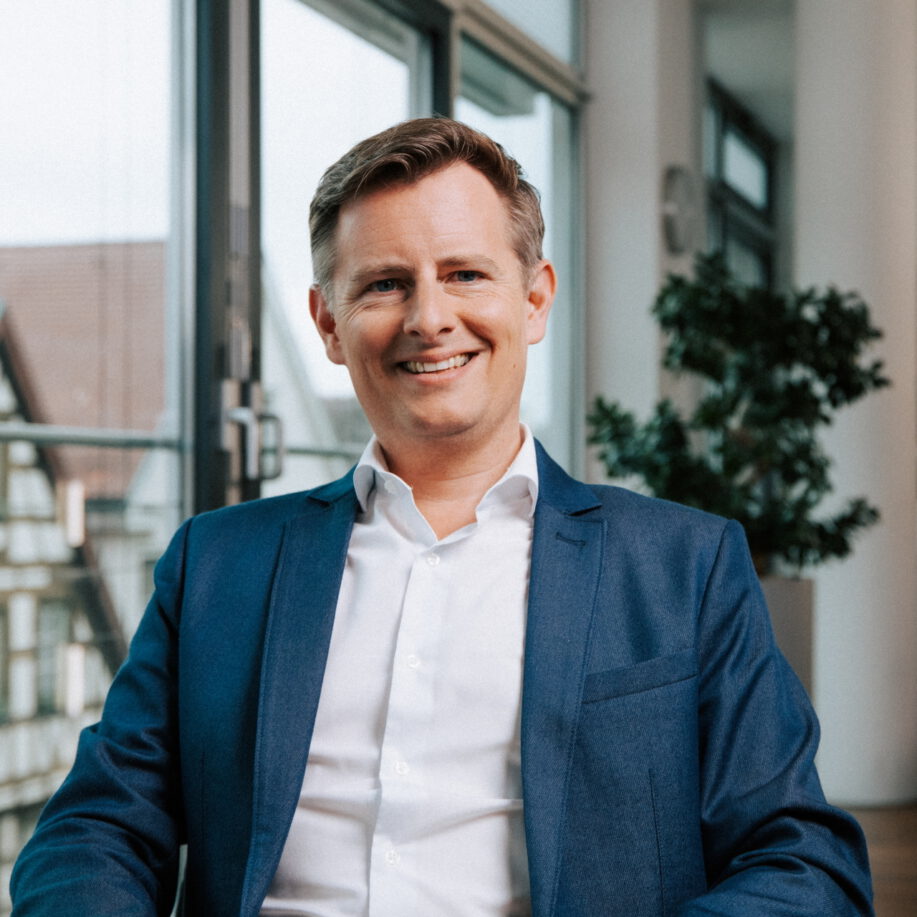
PROUT EMPLOYER BCG PLATINION
„By embracing diversity, we not only enrich our organizational culture but also drive innovation and creativity.“
Matthias Burghardt is an Associate Director at BCG Platinion and supports financial service providers in Central Europe with digital transformations. He studied Information Engineering and Management in Karlsruhe and earned a PhD in Business. Matthias heads the DE&I (Diversity, Equity & Inclusion) activities at BCG Platinion in Central Europe as well as the LGBTQ+ network Pride @ BCG Platinion in EMESA where all activities of the Pride members and allies are coordinated.
You were immediately willing to do a joint interview –
thank you again! Why is it a matter close to your heart or a
concern for you to support queer people in the workplace?
Matthias Burghardt: Supporting queer people in the workplace is crucial for me because it fosters a truly inclusive and respectful environment where every individual can thrive. By embracing diversity, we not only enrich our organizational culture but also drive innovation and creativity. It reflects a commitment to equality and human rights, ensuring that everyone, regardless of their sexual orientation or gender identity, has equal opportunities to succeed and contribute to our collective success.
Which initiatives regarding equal opportunities for queer
people in the workplace are you pursuing within your company?
Matthias Burghardt: We are committed to fostering equal opportunities for queer employees through a multifaceted approach. We are building a diverse workforce by actively recruiting from a wide range of backgrounds and promoting an inclusive environment where everyone can bring one’s true self to work. Our initiatives are centered around our close-knit Pride members and allies, creating a “secret sauce” where everyone finds community. We are also enhancing our external communications to reflect our commitment to LGBTQ+ inclusivity.
Which role do allies play in your organization and
how do you engage them in your LGBTQ+ initiatives?
Matthias Burghardt: Allies are incredibly important for the acceptance and inclusion of LGBTQ+ individuals. Especially allies who actively and strongly advocate for queer issues are essential for LGBTQ+ people to feel fully accepted at work. We understand the importance of an inclusive atmosphere among employees, achievable only by integrating the issue into our company culture. Allyship is more than just changing the company flag on LinkedIn or hosting an annual fair. Allies are an integral part of our Pride Community.
What motivated BCG Platinion to become a PROUT EMPLOYER
and what would you like to see in our cooperation?
Matthias Burghardt: Our motivation to become a PROUT EMPLOYER stems from a deep commitment to fostering an inclusive workplace that celebrates diversity and supports the LGBTQ+ community. We aim to lead by example, promoting equality and understanding. In our cooperation, we aspire to share best practices, innovate in diversity initiatives, and create a broader impact through community engagement, advocacy, and awareness programs. Together, we can build a more inclusive world where everyone is empowered to succeed.
What advice would you give to other companies
that have not yet discovered queer diversity for themselves?
Matthias Burghardt: Embrace queer diversity as an asset. It enriches your company culture, drives innovation, and appeals to a broader customer base. Start by creating a safe, inclusive environment where all voices are heard and valued. Invest in diversity training, support LGBTQ+ employee networks, and commit to equitable policies. Learning from and partnering with organizations like PROUT AT WORK can accelerate your journey. Diversity isn’t just right; it’s smart business. Don’t get left behind.
Dear Matthias Burghardt, thank you very much for the interview!
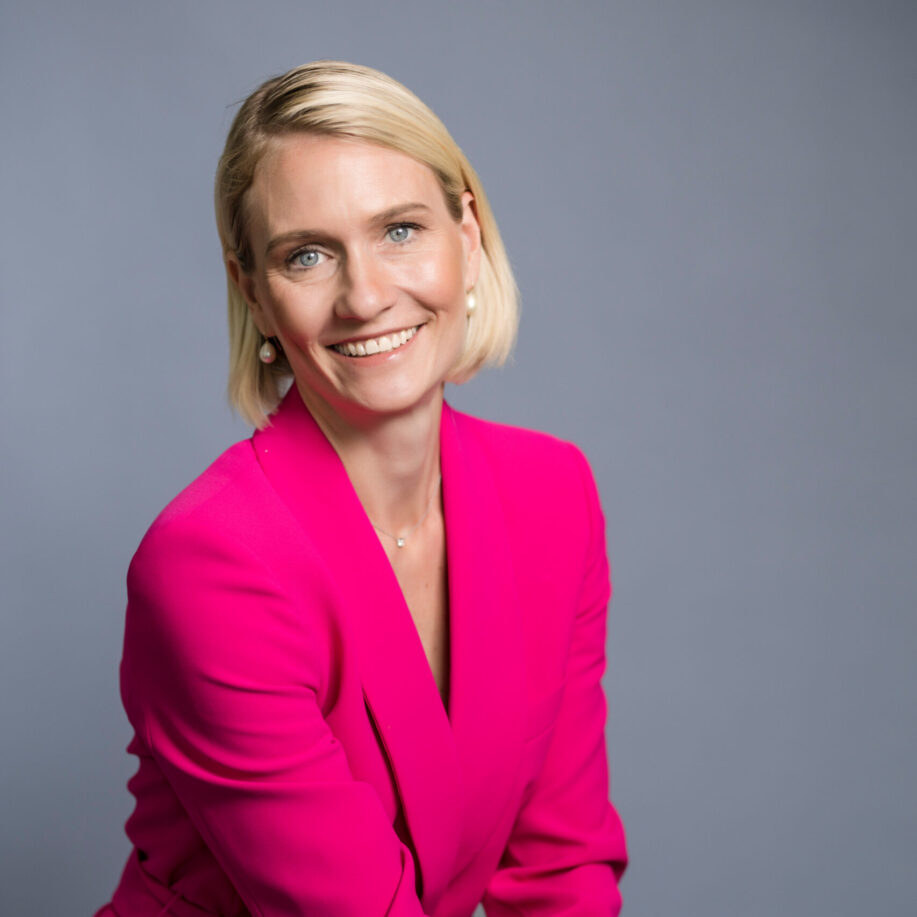
PROUT EMPLOYER Sanofi
“As a sponsor of the network, the queer community is particularly close to my heart. Neither at Sanofi nor in the rest of society can we do without diversity and talent of any sexual orientation, religion, age or origin.”
Dr. Theresa von Fugler is a biochemist, “doer” and family person. As an executive with global experience in the branded goods industry, she has been Managing Director at Sanofi Consumer Healthcare in Germany since September 2021. She is responsible for the area of over-the-counter medicines from pharmacies. This includes brands for the treatment of headaches, coughs, abdominal pain, constipation and allergies. She is a sponsor of the internal LGBT*IQ network in Germany and is particularly committed to diversity in the workplace. In her private life, Theresa is active in sports and finds variety in beekeeping.
Sanofi’s global diversity strategy is called “all in”.
What does this slogan mean to you?
Dr. Theresa von Fugler: As the name suggests, for me “all in” is a positive term for the fact that people of every dimension of diversity can develop here. Sanofi’s employees in Germany are a reflection of society – people of different backgrounds, experiences, attitudes and skin colors work here. We want to be as diverse as the patients we serve.
The equal opportunities development of all employees is part of our corporate culture and a strategic success factor. Inclusion is not a minority program. We want a working environment in which everyone feels valued and supported without any form of discrimination.
Which initiative or action on equal opportunities for
queer people at Sanofi that particularly impressed you?
Dr. Theresa von Fugler: I was fascinated by the Sanofi truck at Christopher Street Day 2023. The passion and joy with which our team took part in the CSD inspired many people to be there too. Showing our colors on this day was a clear commitment to LGBT*IQ and “all in”. Miraculously, our LGBT*IQ network has since grown to include more members. For me, this is an important message – because diversity should have a positive connotation. It’s not for nothing that an expressive and colorful symbol – the rainbow – stands for the LGBT*IQ community worldwide.
In your opinion, what are the big issues and
challenges regarding queer diversity in the
coming years?
Dr. Theresa von Fugler: The area of tension associated with LGBT*IQ diversity is particularly challenging. This affects Sanofi just as much as society as a whole. On the one hand, it is important to encourage people to embrace their uniqueness, which above all requires acceptance and a matter of course. On the other hand, there are people who are bothered by measures to strengthen LGBT*IQ diversity – regardless of whether they come into direct or indirect contact with them. This reinforces the social tension.
What motivated Sanofi to become a PROUT EMPLOYER
and what would you like to see in our cooperation?
Dr. Theresa von Fugler: When we founded our internal LGBT*IQ network “PRIDE+ DE”, it was clear to us right from the start that we wanted to bring in external support and expertise. The aim at the start was to further develop the quality of the network’s work and growth. Every network has a learning curve right from the start. With a strong partner, we wanted to avoid initial mistakes and act strategically. It is also good to network across company boundaries in order to learn from each other and strengthen each other in our day-to-day work.
What advice would you give to other companies
who have not yet discovered queer diversity for themselves?
Dr. Theresa von Fugler: As a sponsor of the network, the LGBT*IQ community is particularly close to my heart. Neither at Sanofi nor in the rest of society can we do without diversity and talent of any sexual orientation, religion, age or origin. But only when opportunities are fairly distributed can talents develop their full potential. Diverse groups help to break down barriers in people’s minds and obstacles in everyday working life.
One thing is certain for me: surrounding ourselves with diverse and different people helps us all move forward, I’m sure of that.
Dear Dr. Theresa von Fugler, thank you very much
for the interview!
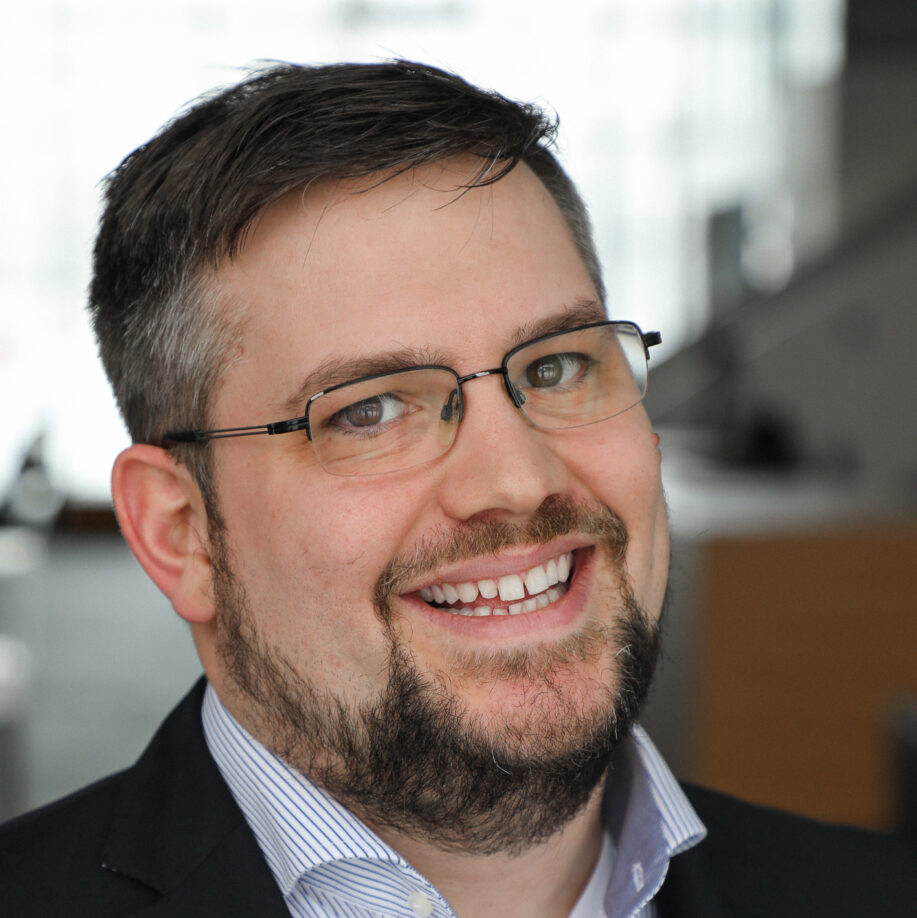
PROUT EMPLOYER Infineon Technologies AG
“I am striving to live and promote the value of diversity in my direct area of responsibility, but do not shy away from supporting beyond that.”
Raphael joined Infineon in May 2016 as a Senior Expert for Ethical Hacking and Incident Management. Before joining Infineon, he worked as a Security Consultant for various national and international companies. In 2017 Raphael took over his first management role at Infineon setting up the Cyber Defense Center as a global team. In 2020 he then took over as Head of the Cyber Security team – in June 2023 the role has been extended to cover all security topics as Head of the newly merged Cyber & Corporate Security teams. Raphael was always part of multinational teams and companies which he enjoyed a lot.
Raphael graduated from University of Tübingen in 2013, where he studied Computer Science. He is married and has two children, lives in Munich but was born in Baden-Wuerttemberg. Fun Fact: His swabian is as bad as his “Hochdeutsch” ;).
You were immediately ready for an interview
– thank you again for that!
Why is it important for you to support queer topics?
Raphael Otto: Diversity in all dimensions; gender, nationality, physical / mental ability or sexual orientation, just to name a few, is very close to my heart. I believe that as a society we benefit from different perspectives. I also believe that as an employer we have a responsibility when it comes to living and promoting our values. I am striving to live and promote the value of diversity in my direct area of responsibility, but do not shy away from supporting beyond that. So, when I was asked if I would be available as a sponsor to our LGBT* & Friends Community, I felt very honored and agreed immediately.
What initiative related to equal opportunities
for queer people was successful at Infineon?
Raphael Otto: In June, during Pride Month, Infineon participated in several pride parades (e.g. Munich) to show support and raise awareness for the LGBTQIA+ community, their history, culture and ongoing work for equal opportunities. The very positive feedback we received from our employees and external stakeholders has shown that our commitment is well received and motivates us to continue with our support for LGBTQIA+.
What are your wishes and goals in your role as sponsor
for the Infineon LGBT* & Friends community?
Raphael Otto: While the LGBT* & Friends Community already achieved a lot, we are still in the beginning of a journey here at Infineon. My wish is to support the community by providing advice, visibility and hands-on support during various activities and events. In particular I want to support the colleagues when addressing LGBTQIA+ inclusion globally. As we are a globally operating company, we face the reality of different levels of awareness and acceptance of LGBTQIA+ issues which can be challenging for our internal community. I hope I can help with that and advocate for them.
How do you react when people question
the importance of queer inclusion?
Raphael Otto: As for every dimension of diversity and inclusion I am typically trying to listen to the argumentation behind the reservation first. I will challenge the arguments highlighting the importance of diversity for successful teams and the need for all humans to feel a sense of belonging and acceptance in society and of course in the workplace. I make clear that everyone wants to be accepted as they are and that this is a human right which should not be questioned.
What motivated Infineon to become a PROUT EMPLOYER
and what would Infineon like to see in this cooperation?
Raphael Otto: At Infineon, we want to offer a workplace where everyone is accepted, feels a sense of belonging and can bring their authentic self to work. Participating in the PROUT EMPLOYER Program is a great chance for us to express our commitment to Diversity & Inclusion and to further increase our knowledge about how to support Infineon’s LGBTQIA+ members as a PROUT EMPLOYER. We are very happy about the cooperation with PROUT AT WORK, which will accompany us with their expertise to create the best Infineon for people of any sexual orientation, gender identity or gender expression.
Dear Raphael Otto,
thank you for the interview!
Show Your true colors!
Das Interview mit Duke wurde für den PRIDE DAY GERMANY 2024 geführt.
Wie setzt Ihr Euch dafür ein, dass alle Menschen, unabhängig von sexueller Orientierung oder geschlechtlichen Identität, an Eurem Arbeitsplatz ein Gefühl der Zugehörigkeit erfahren?
Am 04. Juli feiern wir den PRIDE DAY GERMANY. Der Aktionszeitraum ist jedoch länger geöffnet! Noch bis zum 25. Juli könnt Ihr Eure Aktivitäten für Queer Diversity einreichen und habt damit die Chance zum PRIDE DAY CONTEST Publikumsliebling zu werden! Im sechswöchigen Aktionszeitraum zeigen wir jährlich Eure Firmenaktionen für Queer Diversity auf unserer Website und Eure Kommunikation auf unserer Social Media Wall. Im anschließenden
PRIDE DAY CONTEST führen wir ein Publikumsvoting durch und küren die drei Aktionen mit den meisten Stimmen zu Publikumslieblingen!
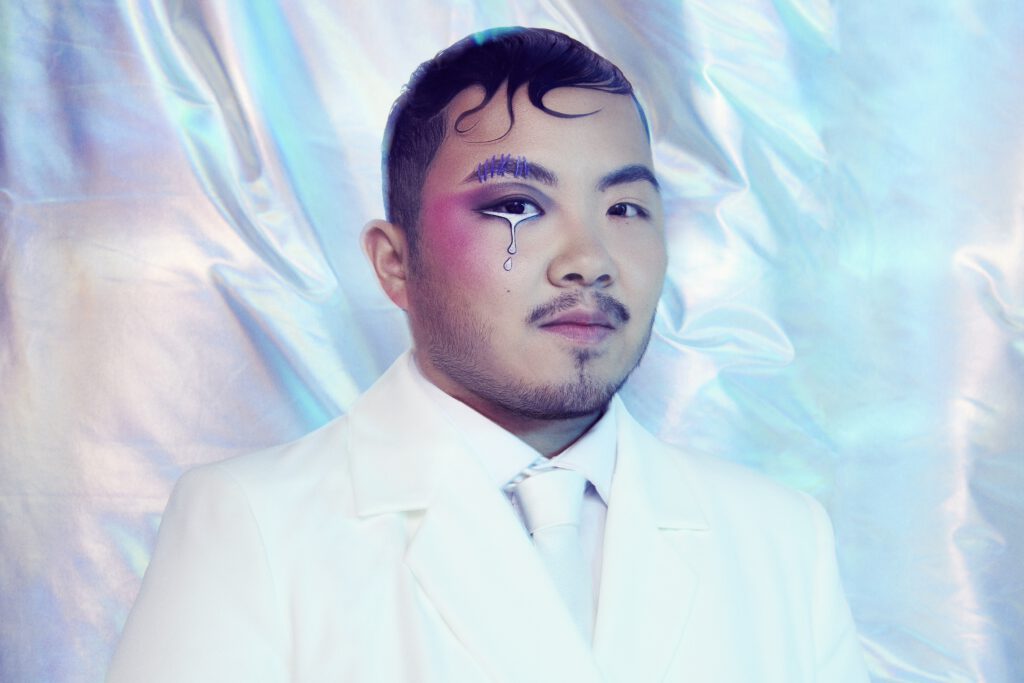
MYSTORY mit …
duke
28 Jahre, hamburg
„manchmal frage ich mich, ob ich nicht zu ‘langweilig’ für
jemand queeres bin.”
Veröffentlicht: November 2023
Ich bin Duke, eigentlich sogar Aaron Duke, aber alle kennen mich als Duke. Der Name Aaron kommt von meinen Eltern. Da ich ein trans* Mann bin, durfte ich meine Vornamen neu auswählen und mir war es wichtig, dass mir meine Eltern wieder meinen ersten Namen geben. Ich bin 28, in Deutschland geboren und habe chinesische Wurzeln.
Meine Pubertät war gefüllt mit Schmerz, Unwissenheit und Trauer.
Ich wusste sehr lange nicht, was mit mir war. Ich war immer anders und gehörte zu den Leuten, die alles versucht haben, um dazuzugehören. Mit 14 habe ich dann beschlossen, meine Haare abzuschneiden, mir Kleidung aus der Jungs-Abteilung zu kaufen und endlich mehr Ich zu sein. Doch auch das war echt schwierig. Ich erkannte, dass ich ein Mann bin, doch fragte mich, was denn einen Mann ausmacht und wie Männer sein sollen?
Ich verlor mich in einer Welle der toxischen Männlichkeit. Wollte stark sein, wollte groß sein, wollte Mann sein. Bin ich jetzt ein Mann? Menschen misgenderten mich, haben nicht verstanden, was ich darstellen wollte, verurteilten und belächelten mich – ich wollte doch nur ein Mann sein.
Ein Mann weint nicht, ein Mann ist nicht schwach, ein Mann schminkt sich nicht. Ich hatte viele Momente vor meiner Transition, in denen ich versucht habe, mich zu schminken. Der Gedanke, Schminke oder Nagellack zu tragen, verflog immer mehr mit meiner Transition. Ich bin nun ein Mann und alle sehen es auch so. Doch dürfen sich nur Frauen schminken? Dürfen nur Frauen bunte und glitzernde Dinge tragen? Ich muss ehrlich sein, ich fühle mich in meinen unscheinbaren, meist dunklen Klamotten schon wohler. Ich würde mich in einem Kleid oder mit ausgefallenem Lidschatten wahrscheinlich nicht wohl fühlen. Aber warum nicht? Warum dürfen nur Frauen das? Warum fühle ich mich damit unwohl? Weil Männer das nun mal nicht tun? Weil uns Männern das immer abgesprochen wird? Weil wir belächelt werden? Weil wir dann verrückt und unseriös sind?
Und das Paradoxe kommt jetzt: Manchmal frage ich mich, ob ich nicht zu „langweilig“ für jemand Queeres bin.
Ich bin 28. Seit sechs Jahren auf Testosteron. Vor vier Jahren Brust- und Gebärmutterentfernung. Seit einigen Jahren in meinem Ich angekommen. Und doch ist meine Selbstfindung noch nicht beendet.
Lieber duke, vielen Dank für YourStory!
PRIDE DAY GERMANY 2024 & PRIDE DAY CONTEST
Hier geht’s zu allen Infos und zur Anmeldung.
